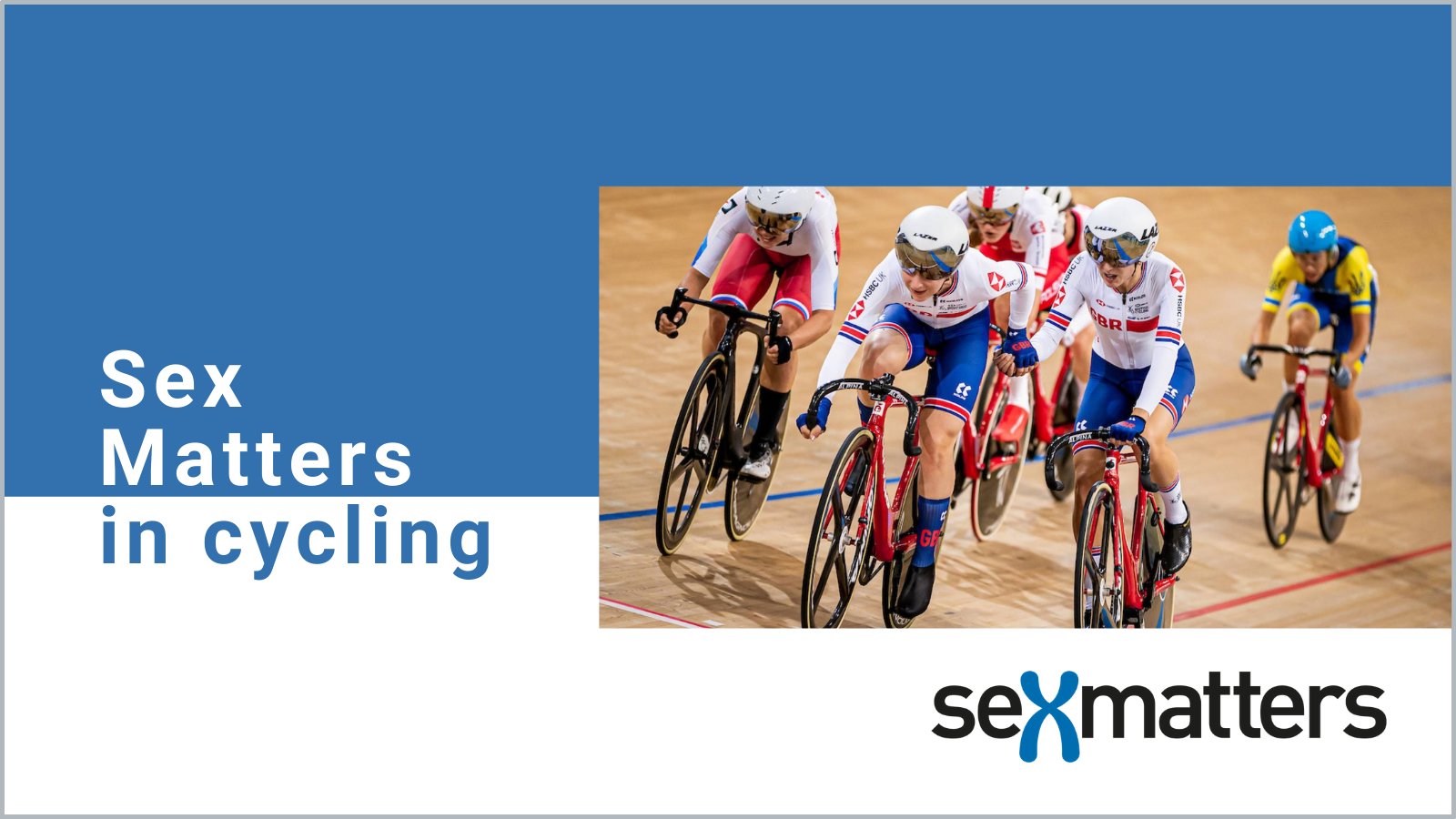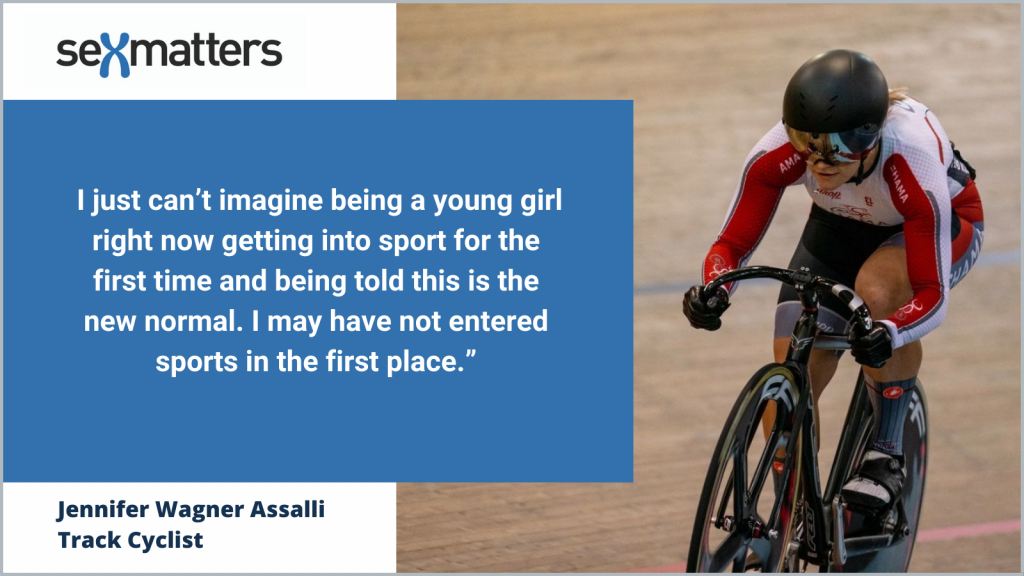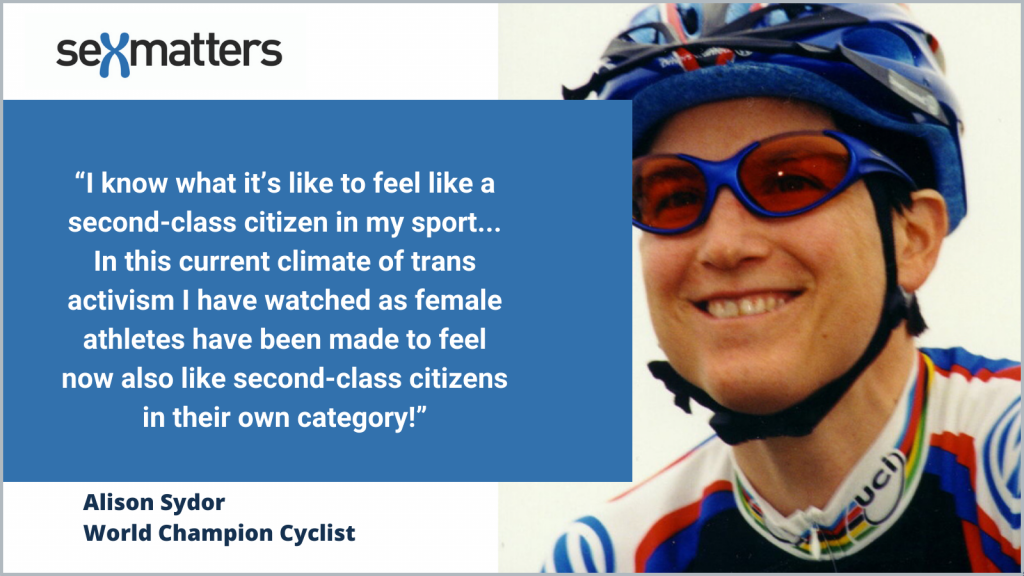Our response to British Cycling

British Cycling is the national governing body for recreational and competitive cycle sports in Great Britain. In March 2021, they announced a new policy to address the participation of transgender and non-binary athletes in cycling events, and opened it for consultation.
Their policy is that in order to provide a “level playing field” transwomen will be permitted to ride competitively with and against female riders, providing they: make a solemn declaration regarding their gender identity, and maintain serum testosterone levels below 5 nM for 12 months prior to and during competition in the female category.
This Sex Matters response draws on expertise from scientists and sports philosophers, and from female cyclists.

What the law says
The UK Equality Act 2010 defines a “gender-affected” sport as one where:
the physical strength, stamina or physique of average persons of one sex would put them at a disadvantage compared to average persons of the other sex as competitors in events involving the activity.
(In other words, they mean sex). Sex discrimination in “gender-affected” sports is permitted, and does not contravene non-discrimination laws pertaining to gender reassignment. In the pursuit of fairness and/or safety, UK sports governing bodies may create and maintain a protected female category of sport from which all males may be legally excluded, regardless of their gender reassignment characteristic.
What the data says
The performance gap between male and female cyclists is 10-24% across track racing, road racing, triathlon, BMX and all disciplines.
This is not simply a factor of size or weight. Exercise physiologist Dr Andrew Coggan has measured power-to-weight ratios of male and female cyclists of different competitive ability (from world class to untrained), measured at 5 seconds, 1 minute and 5 minutes. Males achieve higher watts per kg at all abilities and test times, from 16% at 5 minutes to 24% at 5 seconds.
Over 5 seconds and 1 minute, world class females produce around the same power-to-weight output as “very good” males. Over longer times, world class females are matched by “exceptional” males. These observations illustrate that lower ranked males would perform relatively better in a female field.
Studies of transwomen who have suppressed testosterone as part of their transition find a loss of muscle/strength loss is approximately 5% after 12 months, a modest change that is insufficient to bridge the baseline muscular differences between males and females.
Hormone therapy decreases strength, and musculature but even after after 36 months there remains an advantage.
Testosterone suppression does not alter skeletal parameters like height (and linked attributes like shoulder/hip width, limb length, digit length), and only modestly reduces muscle mass/strength.
The statement fthat testosterone suppression measures will guarantee a level playing field are
without any scientific foundation, and there is sufficient evidence to conclude that the playing field remains distinctly “unlevel”.

